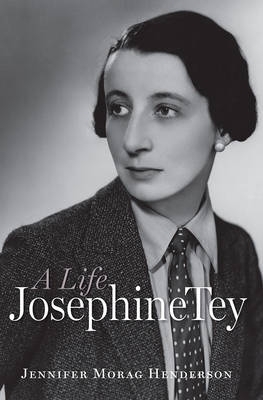Reviewed by brokentune on
And, yet, not much is generally known about Josephine Tey, or rather Elizabeth MacKintosh, because she was a very private person who kept her private affairs strictly separate from her work, and even in that she used several pen names to work in different genres.
With all of these smoke and mirrors, it is even more enjoyable to read a biography that does not just regurgitate the little that has been known about MacKintosh but that evidently presents the results of new research and the authors efforts to really dig through the archives and interview the few remaining people who knew MacKintosh.
Henderson also provides a wider view into the historical and literary background to MacKintosh's upbringing and the issues that influenced her writing - notably some of the hypocrisy of Inverness society.
In an earlier review of Tey's novel The Man in the Queue, I wondered whether "Tey may actually have tried to dispel some of the stereotypes found in the pulp fiction of her time".
Having read this biography, I believe that she indeed struggled with people's assumptions about other people of any difference to them, and that did use her books to dispel various assumptions.
Her upbringing and training instilled in her a love for history and a propensity for researching and questioning accepted facts. Her love for England at a time of the rise of Scottish nationalism, for which her very own home town of Inverness at the centre, caused her to question the importance of national identity. Her friends included people of all walks of life and this together with her disdain for the snobbishness of her neighbours in Inverness, only supported her approach to meet people on the basis of their character, not their background.
When I first picked up this biography, I had some concerns about whether Henderson, herself an Invernessian, would put forward a certain bias of town pride, but this concern was quickly abandoned. Henderson's description and analysis of the existing sources about MacKintosh, her writing, and the historical situation during MacKintosh's life quickly proved a fair and balanced assessment. And, let me say this again, Henderson's efforts in bringing up primary sources to back up her descriptions and statements about MacKintosh, has been really impressive.
This was a brick of a book and I loved every page, and I am now even more eager than before to investigate the works Elizabeth MacKintosh aka Gordon Daviot aka Josephine Tey.
Reading updates
- Started reading
- 11 October, 2017: Finished reading
- 13 November, 2017: Reviewed
- Started reading
- Finished reading
- 13 November, 2017: Reviewed
